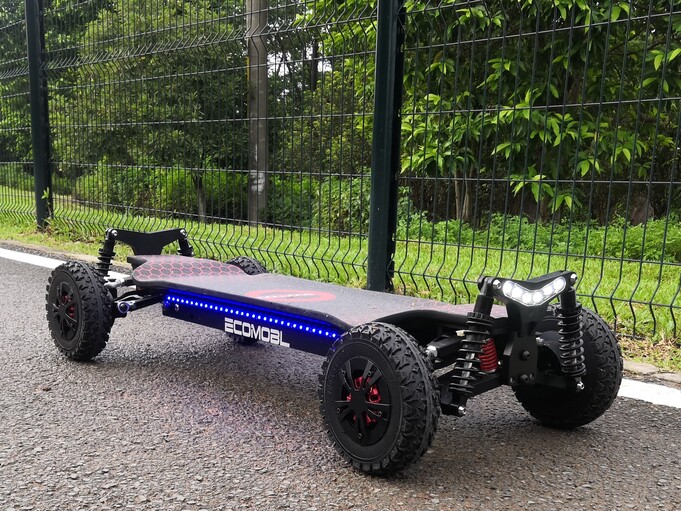Electric skateboards have become increasingly popular in recent years, offering a thrilling and eco-friendly mode of transportation. But have you ever wondered how these futuristic boards actually work? In this article, we will delve into the science behind electric skateboards and explore the fascinating technology that powers them.

Electric Motors: The Powerhouse of Electric Skateboards
At the heart of every electric skateboard lies an electric motor. This compact yet powerful device is responsible for propelling the skateboard forward. Electric motors used in skateboards are typically brushless DC motors, known for their efficiency and durability.
These motors consist of a stator, which is the stationary part, and a rotor, which rotates when electricity is supplied. When an electric current flows through the stator windings, it creates a magnetic field that interacts with the magnets on the rotor. This interaction generates a rotational force, known as torque, which drives the skateboard's wheels.
One of the key advantages of electric motors is their ability to provide instant torque, allowing riders to accelerate quickly and effortlessly. This is in contrast to traditional skateboards, where riders have to rely solely on their own physical power to gain speed.
The Battery: Unleashing the Power
While the electric motor provides the propulsion, it is the battery that supplies the necessary energy. Electric skateboards are typically equipped with lithium-ion batteries, which offer a high energy density and long-lasting performance.
When the rider activates the skateboard, the battery sends a controlled flow of electricity to the motor, enabling it to rotate. The battery's capacity, measured in watt-hours (Wh), determines how far the skateboard can travel on a single charge. Higher-capacity batteries allow for longer rides, while smaller ones are more suitable for shorter commutes.
It's important to note that the battery's performance can be affected by various factors, such as temperature and the rider's weight. Extreme temperatures can reduce the battery's efficiency, while heavier riders may experience slightly shorter battery life.
Regenerative Braking: Harnessing the Power of Momentum
One of the innovative features of electric skateboards is regenerative braking. This technology allows the skateboard to recover and store energy while slowing down or coming to a stop.
When the rider applies the brakes, the electric motor switches into generator mode, converting the kinetic energy of the moving skateboard back into electrical energy. This energy is then fed back into the battery, effectively recharging it and increasing the overall efficiency of the skateboard.
Regenerative braking not only extends the skateboard's range but also reduces wear on the braking system. By harnessing the power of momentum, electric skateboards become more energy-efficient and environmentally friendly.
The Control System: Bringing It All Together
Now that we understand the key components of electric skateboards, let's explore how they are controlled. Electric skateboards typically come with a handheld remote or a smartphone app that allows riders to adjust their speed, switch between different riding modes, and monitor battery life.
The control system communicates wirelessly with the skateboard, sending signals to the motor to adjust its speed and direction. This seamless integration of technology and user interface enhances the overall riding experience and gives riders greater control over their electric skateboards.
Whether you're a seasoned skateboarder or a curious enthusiast, understanding the science behind electric skateboards can deepen your appreciation for these cutting-edge devices. From the electric motor and battery to regenerative braking and the control system, every component plays a crucial role in delivering a thrilling and efficient ride.
For more information on the science behind electric skateboards, check out these credible sources:








